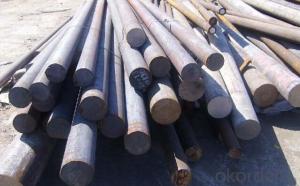Grade CK35 Carbon Steel Round Bars with Low Price
- Loading Port:
- Shanghai
- Payment Terms:
- TT OR LC
- Min Order Qty:
- 3 m.t.
- Supply Capability:
- 100000 m.t./month
OKorder Service Pledge
OKorder Financial Service
You Might Also Like
Item specifice
Grade CK35 Carbon Steel Round Bars with Low Price
Details Information of Grade CK35 Carbon Steel Round Bars with Low Price
| Item | carbon steel bar C35,carbon steel rod,carbon steel shaft | |
| Model No. | Q235B,Q345B,A36,SS330,SS400,SAE1045,Q195,Q215,10#,15#, 25#,30#,1010,1015,1020,1025,1030 | |
| Standard | ASTM,AISI,JIS,DIN,GB,EN | |
| Size | round | Diameter:4mm-800mm |
| Length:1-12m,or as required | ||
| flat | Width:3mm-3000mm | |
| Thickness:0.3mm-200mm | ||
| Length:1m-12m,or as required | ||
| square | Diameter:2mm*2mm-800*800mm | |
| Length:1m-12m,or as required | ||
| angle | Width:10mm*10mm-400mm*400mm | |
| Length:1m-12m,or as required | ||
| hexagonal | Diameter:4mm-800mm | |
| Length:1m-12m, | ||
| Delivery time | Prompt or according to the order quantity. | |
| Trade terms | Payment terms:T/T,L/C,western union | |
| Price terms:FOB,CFR,CIF,EXW | ||
| Package | Standard export seaworthy package, or as required. | |
| Application | Steel bar applies to petroleum,chemical industry,electric power, boiler,high temperature resistant,low temperature resistant, corrosion resistant.Carbon steel bar also can be made accroding to the customer's requirement. | |
| Contact | If you have any question,please feel free to contact me. | |
Chemical Composition of Grade CK35 Carbon Steel Round Bars with Low Price
| C | Si | Mn | P | S | Cr | Ni | Cu |
| 0.17-0.24 | 0.17-0.37 | 0.35-0.65 | ≤0.035 | ≤0.035 | ≤0.25 | ≤0.25 | ≤0.25 |
| Tensile strength (σb/MPa) | Yield strength (σb/MPa) | Elongation (δ5/%) |
| ≥410(42) | ≥245(25) | ≥25 |
Company Introduction of Grade CK35 Carbon Steel Round Bars with Low Price
CNBM International Corporation is the most import and export platform of CNBM group(China National Building Material Group Corporation) ,which is a state-owned enterprise, ranked in 270th of Fortune Global 500 in 2015.
With its advantages, CNBM International are mainly concentrate on Cement, Glass, Iron and Steel, Ceramics industries and devotes herself for supplying high quality series of refractories as well as technical consultancies and logistics solution.
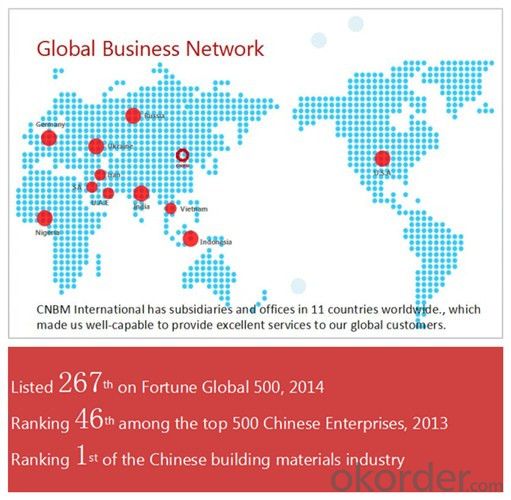
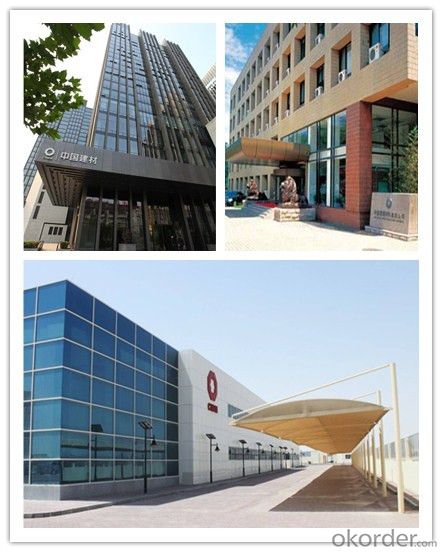
Certificates of Grade CK35 Carbon Steel Round Bars with Low Price
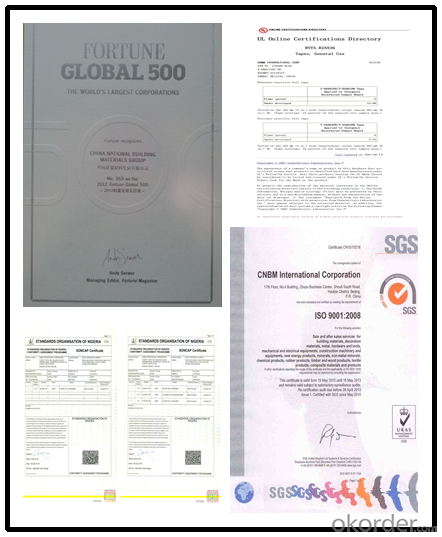
Packaging & Delivery of Grade CK35 Carbon Steel Round Bars with Low Price
Packaging Detail | Sea worthy packing /as per customer's packing instruction |
Delivery Detail | 15 ~ 40 days after receiving the deposit |
Products show of Grade CK35 Carbon Steel Round Bars with Low Price
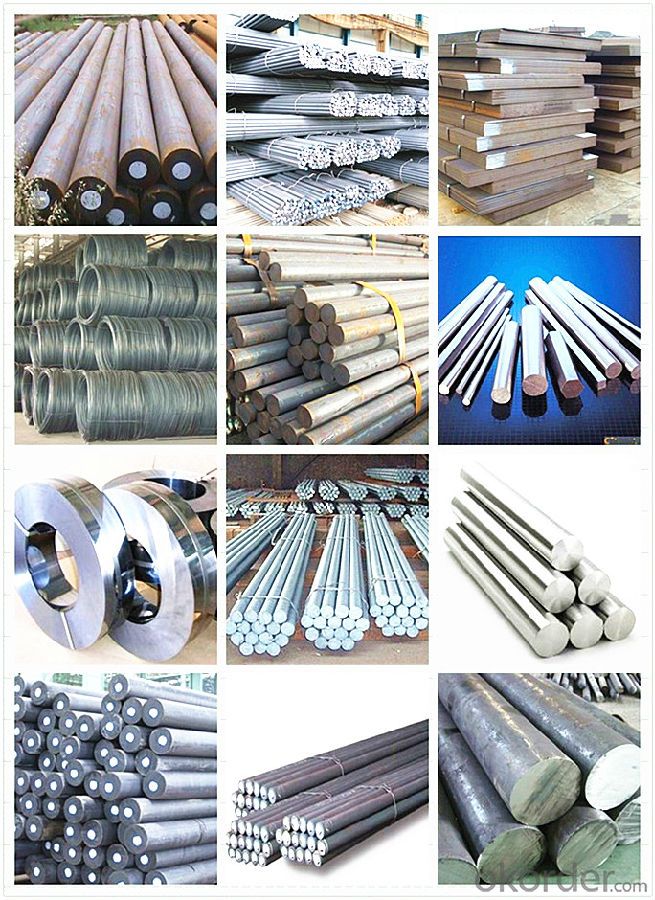
FAQ
Are you a trading company or manufacturer? | Manufacturer |
What’s the MOQ? | 3 metric ton |
What’s your delivery time? | 15-35 days after downpayment received |
Do you Accept OEM service? | Yes |
what’s your delivery terms? | FOB/CFR/CIF |
What's the Payment Terms? | 30% as deposit,70% before shipment by T/T |
Western Union acceptable for small amount. | |
L/C acceptable for large amount. | |
Scrow ,Paybal,Alipay are also ok | |
Why choose us? | Chose happens because of quality, then price, We can give you both. Additionally, we can also offer professional products inquiry, products knowledge train (for agents), smooth goods delivery, excellent customer solution proposals. |
What's your available port of Shipment? | Main Port, China |
What’s your featured services? | Our service formula: good quality+ good price+ good service=customer's trust
|
Where are your Market? | Covering more than 160 countries in the world |
- Q:How is special steel different from regular steel?
- Special steel is different from regular steel due to its unique composition and manufacturing process. It contains additional alloying elements such as chromium, nickel, or molybdenum, which enhance its strength, hardness, corrosion resistance, and other specific properties. Special steel is carefully engineered to meet specific industrial requirements, making it suitable for applications that demand exceptional performance, durability, and resistance to wear and tear.
- Q:What are the properties of carbon steel?
- Carbon steel is a type of steel that primarily consists of iron and carbon, with trace amounts of other elements. It is known for its high strength, durability, and ability to be easily shaped, making it suitable for a wide range of applications. It exhibits excellent hardness and wear resistance, while also being relatively low-cost compared to other types of steel. Carbon steel can be further classified based on its carbon content, with higher carbon levels providing increased hardness and strength. Additionally, it is susceptible to corrosion and requires proper maintenance to prevent rusting.
- Q:What are the specific requirements for special steel used in the railway track industry?
- The specific requirements for special steel used in the railway track industry are designed to ensure the safety, durability, and efficiency of the tracks. Firstly, the steel used for railway tracks must have a high tensile strength to withstand the heavy loads and constant stress applied by trains. This strength allows the tracks to maintain their shape and prevent deformation, ensuring smooth and stable movement of the trains. Secondly, the special steel used in railway tracks must have excellent wear resistance. As trains constantly traverse the tracks, there is significant friction and wear between the train wheels and the tracks. Therefore, the steel needs to be able to withstand this wear and tear, minimizing the need for frequent maintenance and replacement. Thirdly, the steel used in railway tracks must have good fatigue resistance. Trains exert repetitive loads on the tracks, which can lead to fatigue failure if the steel is not able to withstand this cyclic loading. Fatigue resistance ensures that the tracks remain intact and safe for prolonged periods, reducing the risk of accidents. Furthermore, the steel must have high corrosion resistance to withstand exposure to various environmental and weather conditions. Railway tracks are exposed to moisture, temperature variations, and other corrosive elements, making it crucial for the steel to have the ability to resist rust and corrosion. In addition to these mechanical and physical properties, the steel used in the railway track industry must also meet specific dimensional and geometric requirements. This includes precise dimensions, straightness, and alignment to ensure proper installation and alignment of the tracks, allowing for smooth and safe train operations. Overall, the specific requirements for special steel used in the railway track industry revolve around strength, wear resistance, fatigue resistance, corrosion resistance, and dimensional accuracy. Meeting these requirements is essential to ensure the safety, longevity, and efficiency of railway tracks, facilitating smooth and reliable train transportation.
- Q:How does special steel contribute to the telecommunications industry?
- Special steel plays a crucial role in the telecommunications industry by providing the necessary strength, durability, and resistance to various environmental factors. In telecommunications, special steel is primarily used in the manufacturing of transmission towers, antenna systems, and other supporting structures. Transmission towers, for instance, are the backbone of the telecommunications network. They need to be able to withstand extreme weather conditions like strong winds, heavy precipitation, and even earthquakes. Special steel, with its high tensile strength and resistance to corrosion, ensures that these towers remain stable and operational under such challenging circumstances. Furthermore, special steel is also used in the construction of antenna systems. Antennas, whether for satellite communication or wireless networks, require materials that possess excellent electrical conductivity and low signal loss. Special steel alloys can meet these requirements, allowing for efficient signal transmission and reception. Moreover, special steel offers the advantage of being lightweight compared to other materials while maintaining its strength. This weight reduction is particularly beneficial when it comes to constructing structures that need to be installed at significant heights, such as telecommunication towers. By using special steel, telecommunications companies can achieve cost savings in both construction and transportation. Additionally, special steel's durability and resistance to corrosion make it ideal for long-term use in the telecommunications industry. These properties ensure that the structures and equipment made from special steel have an extended lifespan, reducing maintenance and replacement costs. This longevity also contributes to the overall reliability and stability of the telecommunications network. In summary, special steel's unique properties, including its strength, durability, resistance to environmental factors, and efficient signal transmission capabilities, make it an essential material in the telecommunications industry. By providing the necessary support and reliability, special steel contributes significantly to the seamless operation of communication networks, enabling efficient and reliable connectivity for individuals and businesses worldwide.
- Q:How is special steel tested for quality and durability?
- Special steel is tested for quality and durability through a series of rigorous tests and inspections. These tests typically include measuring mechanical properties such as tensile strength, hardness, and impact resistance. Additionally, non-destructive testing methods like ultrasonic and magnetic particle inspections are used to detect any internal defects or inconsistencies. Quality and durability are ensured by adhering to strict industry standards and specifications, and only steel that meets the required criteria is deemed suitable for use.
- Q:What is the hardness range of special steel?
- The hardness range of special steel typically varies between 20 and 70 HRC (Rockwell Hardness Scale).
- Q:What are the main applications of special steel in the automotive electrical systems?
- Special steel is commonly used in automotive electrical systems for various applications such as manufacturing electrical connectors, terminals, and wiring harnesses. It offers high conductivity, corrosion resistance, and superior strength, making it an ideal choice for components that require efficient flow of electrical current and durability in harsh environments. Additionally, special steel can also be utilized in the construction of sensors, relays, and other electronic devices within the automotive electrical system, ensuring reliable performance and longevity.
- Q:What are the main applications of special steel in the agricultural sector?
- Special steel has various applications in the agricultural sector, including the manufacturing of agricultural machinery and equipment such as tractors, plows, and harvesters. It is also used for constructing storage silos, irrigation systems, and fencing materials. Additionally, special steel is utilized in the fabrication of cutting tools, blades, and parts for farming implements, ensuring durability and high performance in challenging agricultural environments.
- Q:How does special steel perform in magnetic applications?
- Special steel, also known as stainless steel, generally performs well in magnetic applications. However, it is important to note that not all types of stainless steel are magnetic. The magnetic properties of special steel depend on its composition and the presence of certain elements such as nickel, manganese, and chromium. Austenitic stainless steel, which is the most common type, is non-magnetic due to its high nickel content. This makes it ideal for applications where magnetic interference is undesirable, such as in sensitive electronic devices or medical equipment. On the other hand, ferritic and martensitic stainless steels, which have lower nickel content, are magnetic. These types of special steel are commonly used in applications where magnetic properties are required, such as in magnetic separators, transformers, and electric motors. It is worth mentioning that the magnetic strength of stainless steel is relatively weak compared to other magnetic materials like iron or nickel. Therefore, if a strong magnetic field is needed, alternative materials may be more suitable. Overall, special steel can perform well in magnetic applications depending on the specific type and composition. It is important to consider the desired magnetic properties and consult with experts or refer to material specifications to ensure the appropriate selection for a particular application.
- Q:How does special steel contribute to the aerospace noise reduction?
- Special steel contributes to aerospace noise reduction in several ways. Firstly, special steel alloys can be used to manufacture components such as aircraft engine parts and exhaust systems that are specifically designed to minimize noise generation. These alloys possess properties like high strength and heat resistance, enabling them to withstand the extreme conditions inside an aircraft engine while reducing noise emissions. Additionally, special steel can be utilized in the construction of aircraft structures and panels. By incorporating specific types of steel with sound-dampening properties, the transmission of noise through the fuselage can be minimized. This helps to reduce the noise experienced by passengers and crew, leading to a quieter and more comfortable flight experience. Furthermore, special steel can be employed in the manufacturing of vibration-damping components within aircraft systems. Vibrations generated by various mechanical systems can contribute to overall noise levels. By utilizing steel alloys with excellent damping properties, these vibrations can be absorbed and minimized, thereby reducing noise levels. In summary, special steel plays a crucial role in aerospace noise reduction by enabling the manufacturing of noise-reducing components, providing sound-dampening properties to aircraft structures, and minimizing vibrations that contribute to overall noise levels.
1. Manufacturer Overview |
|
|---|---|
| Location | |
| Year Established | |
| Annual Output Value | |
| Main Markets | |
| Company Certifications | |
2. Manufacturer Certificates |
|
|---|---|
| a) Certification Name | |
| Range | |
| Reference | |
| Validity Period | |
3. Manufacturer Capability |
|
|---|---|
| a)Trade Capacity | |
| Nearest Port | |
| Export Percentage | |
| No.of Employees in Trade Department | |
| Language Spoken: | |
| b)Factory Information | |
| Factory Size: | |
| No. of Production Lines | |
| Contract Manufacturing | |
| Product Price Range | |
Send your message to us
Grade CK35 Carbon Steel Round Bars with Low Price
- Loading Port:
- Shanghai
- Payment Terms:
- TT OR LC
- Min Order Qty:
- 3 m.t.
- Supply Capability:
- 100000 m.t./month
OKorder Service Pledge
OKorder Financial Service
Similar products
New products
Hot products
Related keywords
